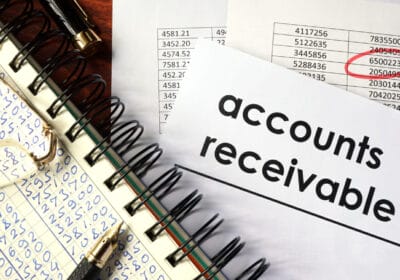How credit rating can impact you and your business loan application in Singapore
A good credit rating is essential for anyone looking to access financing in Singapore. Whether you are an individual or a business, having a good credit rating can make it much easier to secure the loan you need for your project. This article will explain how credit rating can impact you and your business loan application in Singapore so that you can make sure that your application has the best chance of success. We will discuss how lenders use credit ratings when assessing applications and why having a good score is important. We’ll also provide some tips on how you can improve your own credit rating and make sure that your application stands out from the crowd. Finally, we’ll explain what other factors might influence your chances of success with a loan application in Singapore. By the end of this article, you should have a better understanding of how credit ratings affect loan applications in Singapore and what steps you can take to ensure that yours is successful.
Credit Rating Agencies In Singapore
The 2 main credit rating agencies are Experian Credit Services Singapore (formerly known as DP Information Group) and Credit Bureau Singapore (CBS). While Experian uses DP Credit Rating’s risk financial model to assess the default probabilities of Singapore companies, CBS is a consumer credit bureau that gathers credit-related information from banks and financial institutions through information pooling. Lenders will use the borrower’s credit profile created by CBS for credit risk assessment, these profiles will determine the creditworthiness of the borrower hence directly impacting a borrower’s loan application approval rate.
Definition of Credit Rating and Credit Score
Credit Rating and Credit Score in Singapore is defined by the Credit Bureau. A Credit Rating is a numerical expression, based on an analysis of a person’s credit files, which indicates the probability of that person defaulting on any loan or meeting their financial commitments. The higher the rating, the more creditworthy a person is considered to be. On the other hand, a Credit Score is a 3-digit numerical representation of an individual’s creditworthiness. It reflects an individual’s past payment history as well as current debt levels and acts as an indication of how likely it is for them to be able to meet future financial obligations. In Singapore, the most commonly used Credit Bureau is Credit Bureau Singapore (CBS). CBS uses its proprietary scoring system called “CreditExpert” to determine each individual’s credit score. This score ranges from 0 to 999 and helps lenders assess an individual’s risk profile when granting them loans or services.
Importance of Creditworthiness for Business Loan Application
For business owners, a loan can be essential to finance an expansion or cover cash flow gaps. However, before a bank will approve a loan, they need to assess the creditworthiness of the borrower. Creditworthiness is an important indicator of whether a business can successfully repay the loan. It helps lenders determine if they can expect to recover their money in case the borrower defaults on payments. A good credit history and strong financials are key factors that help businesses secure loans and make them eligible for better interest rates and repayment terms. In this article, we will explore how creditworthiness affects business loan applications and discuss some tips on how to improve it.
Understanding Credit Reports
What is a credit score?
A credit score is a four digit number between 1000 and 2000, which is derived from the borrower’s past payment history on loan accounts. A score of 1000 suggests the highest possibility of defaulting on payments, whereas the highest score of 2000 denotes a lesser probability of delinquency. In addition to the numerical value, a risk grade and its explanation are also included.
| Score Range | Risk Grade | Probability of Default | Probability of Default |
| Min | Max | ||
| 1911 – 2000 | AA | 0.00% | 0.27% |
| 1844 – 1910 | BB | 0.27% | 0.67% |
| 1825 – 1843 | CC | 0.67% | 0.88% |
| 1813 – 1824 | DD | 0.88% | 1.03% |
| 1782 – 1812 | EE | 1.03% | 1.58% |
| 1755 – 1781 | FF | 1.58% | 2.28% |
| 1724 – 1754 | GG | 2.28% | 3.46% |
| 1000 – 1723 | HH | 3.46% | 100.00% |
Source: https://www.creditbureau.com.sg/
What is a credit report
The credit report shows the information on the type of loan, lenders, tenure of loan accounts, and payment history shown in a span of 12 months with the latest cycle on the left, whereas the closed accounts will display the last 12 months of payment status history for 3 years from the date of closure.
Lenders will use this credit report to critically assess the payment behavior and determine the creditworthiness of a borrower.
Source: https://ccs.org.sg/articles/credit-report-220317/
Source: https://www.creditbureau.com.sg/
How Credit Rating and Credit Score Can Impact a Loan Application
A loan application is greatly impacted by the credit rating and credit score of the borrower. A lender will review this information to determine the borrower’s ability to repay the loan with interest. A higher credit score generally indicates a good history of timely payments and a lower likelihood that the loan will be defaulted on in the future. On the other hand, if one has a low credit score, it may indicate that they have been late with payments or have had difficulty making payments in the past. As such, lenders may be more hesitant to approve loans or even outright reject for those with lower scores, or they may offer them at higher interest rates as a form of risk management. Therefore, it is important to maintain a good credit rating and score when applying for a loan.
Ways To Improving Your Credit Score For A Successful Business Loan Application
1. Commit To Maintaining A Good Credit Score
Always plan your expenses ahead and put aside an emergency fund to avoid short term cash flow issues. Make it a habit to always check your bills on time and apply for a GIRO arrangement so you will not miss out any payment due dates.
2. Check Your Credit Bureau Report
Before applying for your loan, you should also make sure that your credit score ratings are accurate. Ensure that your credit bureau report has no discrepancies. If there are any discrepancies or inconsistencies, make sure you report them as soon as you can. You don’t want an inaccurate credit report to affect your loan application.
Prior to applying for your loan, you should also check your credit bureau report to verify that your credit score ratings are accurate and have no inaccuracies. If there are any discrepancies or inconsistencies, make sure you to Credit Bureau Singapore before a loan application. The last thing you want is for an inaccurate credit report to affect your loan application.
3. Do Not Apply For Multiple Loan At The Same Time
Banks will run your personal credit bureau report when you are applying for a personal or sme business loan application. When there are multiple credit bureau searches on you for new loan applications at the same period, your personal credit grading will be affected. This will in turn affect the approval chance for your loan application.
4. Limit The Credit Cards You Have
Having numerous unsecured credit facilities such as credit cards that you do not utilize will also have an impact on your loan approval. Lenders will view you as a high risk individual due to your exposure to a combined substantial credit limit that can be utilized instantly from numerous unsecured facilities.
By limiting the number of credit cards you have, it is also easier to monitor the bills and payments. The ease of monitoring your bill and payments will reduce the chances of missing payment due dates.





